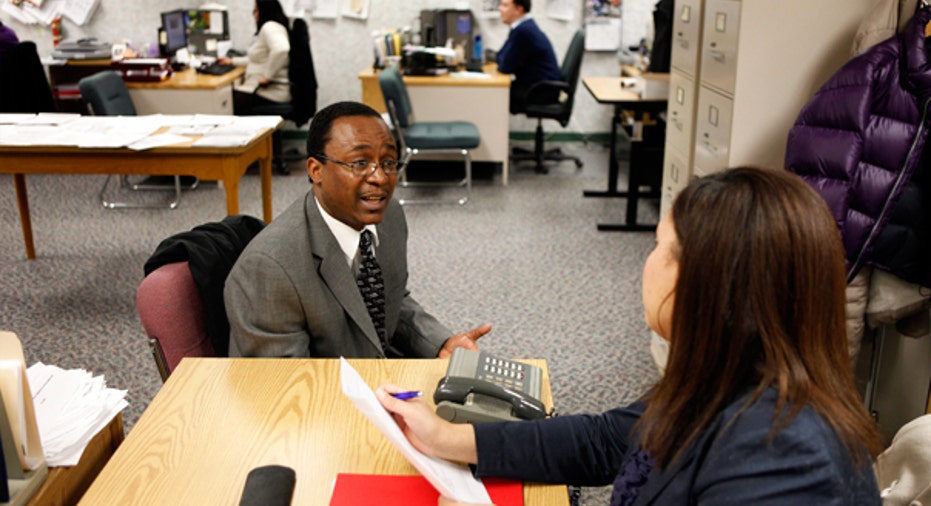How Students Should Follow Up With Employers

College seniors who have sent out resumes and interviewed with hiring managers might be ready to sit back and hope for a job offer, but their application process is far from complete.
In the current competitive job market, following up after the interview has evolved beyond a common courtesy and into a necessary step.
“It shows us that they care, they want to work here, that we’re not just one of six companies and whoever offers the most money is the offer you’re going to take, so it’s incredibly important and many do not do it,” says Tony Knopp, CEO of ticket management company SpotlightTMS.
An effective follow up provides employers a sense for how a candidate might conduct themselves in a professional setting as an employee at that company, says Lindsey Pollak, career expert and author of Getting from College to Career.
“You want to show that you understand professionalism means showing up, following up, closing the loop on conversation, it means communicating regularly so you’re advancing your job search but you’re also demonstrating your professionalism, which is so crucial when the job market is so tough,” she says.
For soon-to-be grads unsure of how to reconnect after the formal interview, here’s what career experts say are the best ways to follow up and land the position.
Tip 1: Establish Contact Right Away
Sending a follow up email 12 to 24 hours after the interview shows initiative and allows job seekers to reference specifics from the conversation, says Dan Schawbel, career expert and author of Promote Yourself: The New Rules for Career Success.
“The way I would follow up is, ‘it was great meeting you today, I learned a lot about the company and the position, I was especially interested in the fact that this job allows me to travel or whatever it would be based on what was discussed in the interview, and then say you’re very interested in the position, and you look forward to hearing back,’” he says.
While it’s important to send the email right away, applicants can set themselves apart in some workplace environments with a hand-written thank you note, suggests Pollak.
“If they’re very formal, if it’s a traditional company, you can’t go wrong by sending a hand written note,” she says. “If you’re applying at a super fast paced internet company where the CEO is 27, an email is probably just fine but you have to read the situation and when in doubt, send the thank you note hand written.”
Tip 2: Give Value to Second, Third Follow-Ups
Depending on whether or not employers give applicants a timeline of when they can expect to hear from them, the experts recommend reconnecting within a week to 10 days after the initial follow up.
It’s important to add value to the conversation rather than aimlessly reaching out again and again, explains Pollak.
“Say, ‘I recently read an article about the company and I was really excited to read about such and such’ or ‘I signed up for another class because you talked about how learning Excel is important to the job and I wanted to let you know I took your advice’--anything about that person or the company or you that adds some little piece of information,” she says.
Knopp explains that job seekers shouldn’t panic and get overzealous with reaching out if they haven’t heard anything in a week or two.
“When people do say they’re busy and they’ll get back to you next week, they’re not blowing you off as long as they’re giving you a timeline, sometimes they just get busy,” he says. “It’s the approach and the syntax of the approach: I understand you’ve got a lot going on, I would love to come and take some of that off of your hands, please let me know and I really appreciate it.”
Tip 3: Don’t Stop Looking for Opportunities
If applicants have not heard back from a company after three follow ups, it’s time to accept the company may not be a good fit and move on to other opportunities.
Schawbel explains that it’s essential for job seekers to continue their search and treat it like a full time job until they have a written offer in hand.
“You can’t put all your energy into that one position or that one company, you just have to apply to other jobs and keep interviewing,” he says. “People will literally apply to a company, wait to hear back and just remain stagnant and then they don’t get the position and then they’ve wasted all that time—it’s a huge issue.”
Although it can be frustrating not to hear any kind of response from employers, job seekers have to stay focused and move forward, says Knopp.
“It’s an unfortunate reality that if they don’t contact you back, you’re not getting the job, but you don’t want to work somewhere where you were the third choice.”



















